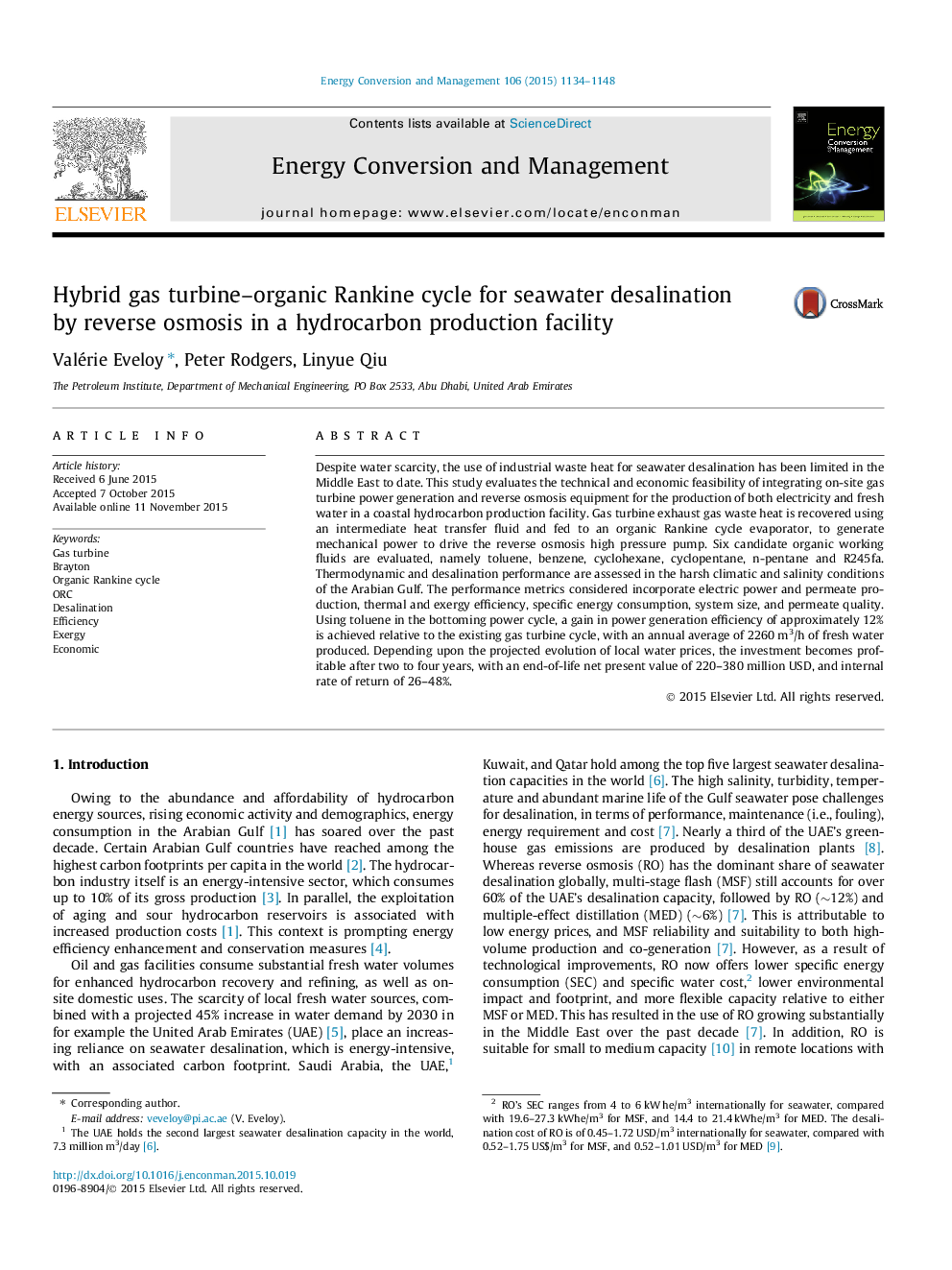| Article ID | Journal | Published Year | Pages | File Type |
|---|---|---|---|---|
| 7161720 | Energy Conversion and Management | 2015 | 15 Pages |
Abstract
Despite water scarcity, the use of industrial waste heat for seawater desalination has been limited in the Middle East to date. This study evaluates the technical and economic feasibility of integrating on-site gas turbine power generation and reverse osmosis equipment for the production of both electricity and fresh water in a coastal hydrocarbon production facility. Gas turbine exhaust gas waste heat is recovered using an intermediate heat transfer fluid and fed to an organic Rankine cycle evaporator, to generate mechanical power to drive the reverse osmosis high pressure pump. Six candidate organic working fluids are evaluated, namely toluene, benzene, cyclohexane, cyclopentane, n-pentane and R245fa. Thermodynamic and desalination performance are assessed in the harsh climatic and salinity conditions of the Arabian Gulf. The performance metrics considered incorporate electric power and permeate production, thermal and exergy efficiency, specific energy consumption, system size, and permeate quality. Using toluene in the bottoming power cycle, a gain in power generation efficiency of approximately 12% is achieved relative to the existing gas turbine cycle, with an annual average of 2260Â m3/h of fresh water produced. Depending upon the projected evolution of local water prices, the investment becomes profitable after two to four years, with an end-of-life net present value of 220-380Â million USD, and internal rate of return of 26-48%.
Related Topics
Physical Sciences and Engineering
Energy
Energy (General)
Authors
Valérie Eveloy, Peter Rodgers, Linyue Qiu,
